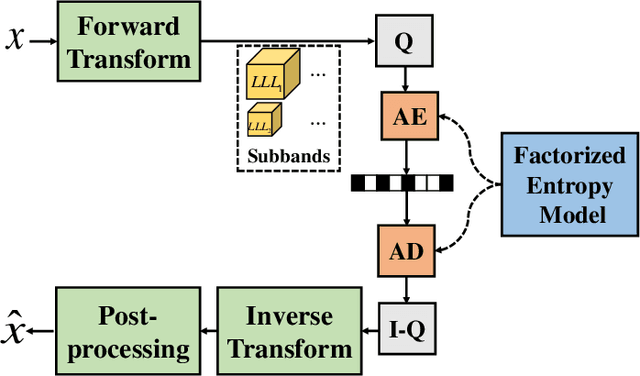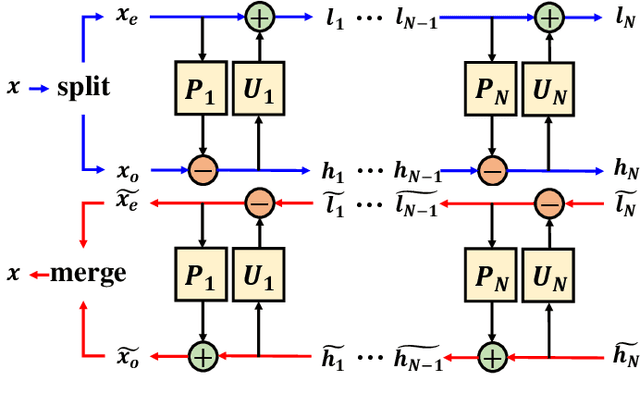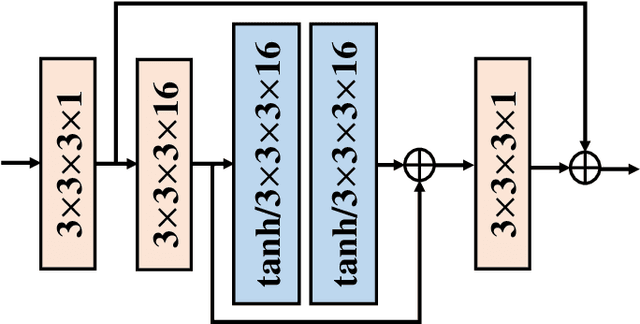iWave3D: End-to-end Brain Image Compression with Trainable 3-D Wavelet Transform
Paper and Code
Oct 10, 2021



With the rapid development of whole brain imaging technology, a large number of brain images have been produced, which puts forward a great demand for efficient brain image compression methods. At present, the most commonly used compression methods are all based on 3-D wavelet transform, such as JP3D. However, traditional 3-D wavelet transforms are designed manually with certain assumptions on the signal, but brain images are not as ideal as assumed. What's more, they are not directly optimized for compression task. In order to solve these problems, we propose a trainable 3-D wavelet transform based on the lifting scheme, in which the predict and update steps are replaced by 3-D convolutional neural networks. Then the proposed transform is embedded into an end-to-end compression scheme called iWave3D, which is trained with a large amount of brain images to directly minimize the rate-distortion loss. Experimental results demonstrate that our method outperforms JP3D significantly by 2.012 dB in terms of average BD-PSNR.
 Add to Chrome
Add to Chrome Add to Firefox
Add to Firefox Add to Edge
Add to Edge